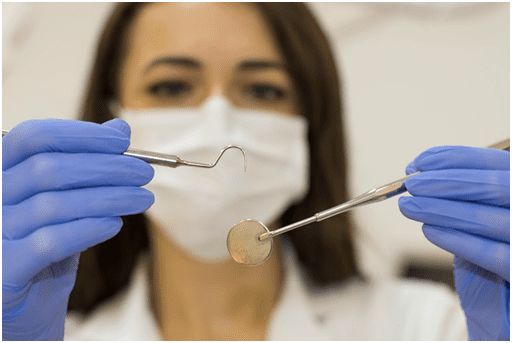What to Expect When Getting a Root Canal

A root canal is a procedure that’s performed by your Asheville dentist or sometimes an endodontist (a specialist in saving teeth). During a root canal, your dentist will restore your tooth instead of extracting it, giving people a way to save their teeth without the need for a replacement.
It’s suspected that some ancient cultures used instruments in an attempt to perform root canals on damaged or infected teeth, but modern root canals didn’t happen until the 18th century or so. Today, root canals are considered a viable way to protect and save teeth from extraction.
What can you expect when getting a root canal with your dentist in Asheville?
First, What Exactly Is a Root Canal?
When the center of your tooth which contains all the nerves that keep your tooth alive has been affected by injury or decay, you may need a root canal.
During a root canal, your dentist will remove the nerve tissue that may be dead or infected inside your tooth and seal the chamber with a mix of natural and synthetic material to prevent further damage from occurring.
A root canal is usually finished with a dental crown, which helps protect the sealed chamber of your tooth to prevent the need for future dental work.
Why Would I Need a Root Canal?
Root canal therapy is considered under certain circumstances, such as:
- Extensive decay. If you have a large cavity that’s compromised your tooth structure and can’t sustain a filling, your dentist may recommend root canal therapy.
- A tooth fracture. If your tooth has a deep crack, bacteria may get into the center of your tooth and cause pain or infection.
- Injury. Sometimes an accident that injures a tooth can cause the nerve tissue to die, which can cause a dark or gray-colored tooth that can only be restored with a root canal.
Your oral healthcare professional will evaluate your unique smile to determine if root canal therapy would benefit you.
Getting a Consultation
During your consultation, your Asheville dentist will conduct a professional exam of your smile which will include dental x-rays to determine if root canal therapy would be appropriate for you.
If your dental practice recommends a root canal, you’ll discuss the next steps with your dentist. Most root canal procedures take about two appointments one to conduct the actual procedure and the next to fit you with your final restoration, a dental crown.
Your dentist will also review all your other options with you to determine if a root canal is the best choice for your smile.
What Happens During Root Canal Therapy
During a root canal, your dentist will use a local anesthetic to numb the area that’s getting a root canal. If you’d prefer to have a stronger type of sedation during the procedure, you can discuss this with your dentist during your consultation.
With new technology, root canals are not considered to be painful and are more similar to getting a filling.
Your dentist will then make an opening in your tooth and remove the nerve tissue from the chamber inside the tooth and your tooth’s roots (hence the name root canal).
The inside of your tooth will be cleaned and sealed. After the procedure is complete, your dentist may give you a temporary restoration to protect the tooth until you can get a permanent crown placed.
Taking Care of Your Tooth What Foods Can You Eat?
You can drive yourself home following the appointment, but it’s important not to eat any foods until the numbness in your mouth wears off.
The affected tooth may have some sensitivity for a few days following your procedure and the surrounding area may be a bit swollen. Your dentist may also prescribe antibiotics after your treatment.
In regards to foods, try to avoid hard or crunchy foods in addition to foods that are very hot or cold, at least for the first few days after your root canal. Stick to softer foods that are easier to eat and closer to room temperature until your mouth heals.
Signs and Symptoms to Look Out for
Your discomfort should subside within a few days after your root canal procedure, but what signs and symptoms should you look out for in the meantime?
- Extreme pain or swelling that won’t go away
- A rash or hives that may be itchy; this could indicate an allergic reaction to a medication or a substance used during your treatment
- If you can actually see swelling, whether it’s inside or outside your mouth
- You experience the symptoms you were having before your root canal
- Your temporary filling comes out
Any of these signs or symptoms following root canal therapy could indicate a more serious issue and should be evaluated by your professional dentist. Always call your dentist with any questions or concerns you may have!
How Long Will Root Canal Therapy Last?
Root canal therapy can last a lifetime with the right care. This includes not only caring for your teeth with daily brushing and flossing, but also by visiting your dentist for regular checkups. Your dentist can support your care for your smile with regular cleanings and checkups that will help prevent infection and the need for future restoration work.
Do You Need a Root Canal?
It’s hard to tell whether or not you need a root canal without an exam from your Asheville dentist. In many cases, a filling will be enough to repair the tooth, but for some people, root canal therapy will be necessary.
If you have a tooth infection or one tooth that’s darker than the others, root canal therapy might save your smile. Contact us at Saunders DDS to schedule an appointment to evaluate your smile by calling us at (828) 277-6060 or by filling out this form to request an appointment!
